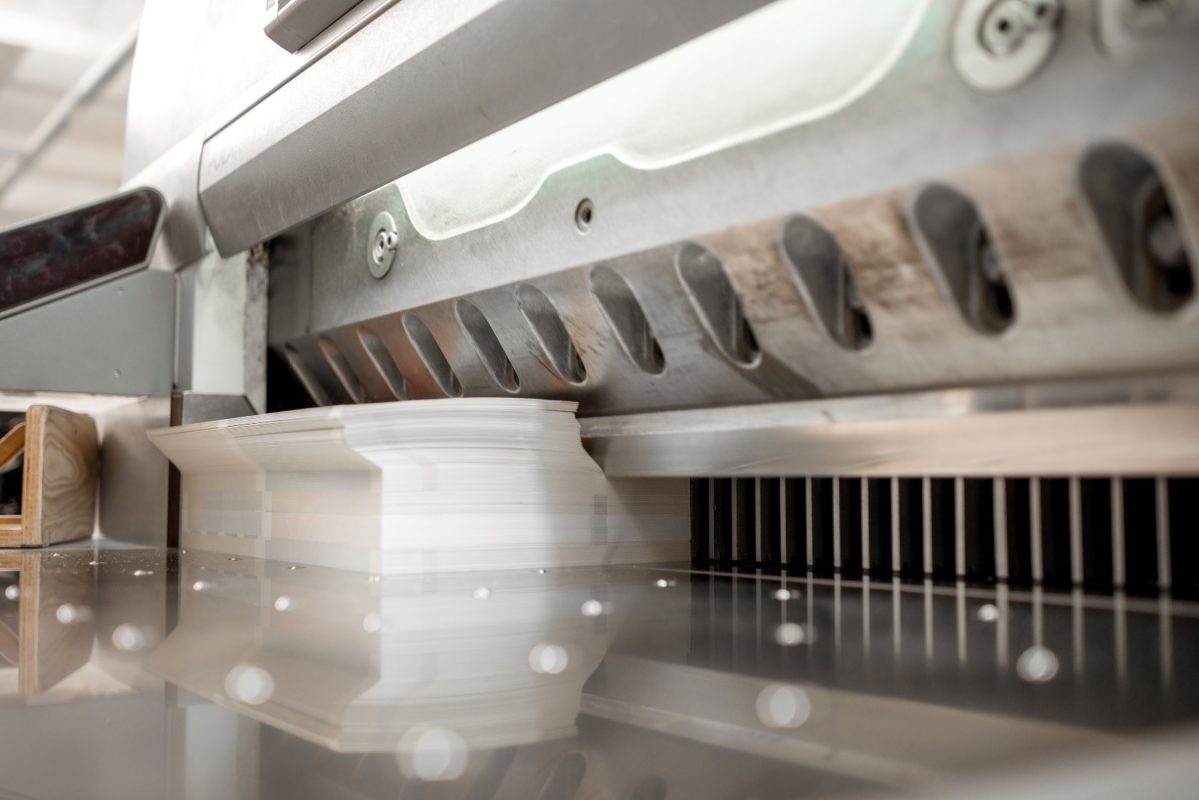Within all of the various converting industries, keeping your machine blades at top-notch performance is extremely important. From shearing or slicing, to folding and scraping, your machine knives are imperative in making all of your processes run smoothly. A certain level of accuracy and precision is a must, so selecting the right blade and materials is a crucial step.
Here at Leverwood Knife Works, we understand all of the ins and outs of manufacturing. No matter how unique your cutting challenge is, we’re here to help. We know that having high-quality blades will help you save money with both blade replacement costs, as well as reduced machine down times. Whether you’re cutting paper, foil, film, rubber, plastic extrusions, or something else, we want to help you make the most informed decision with your industrial blade choice.
Common Types of Materials
Even if you’re not familiar with common industrial blade materials, we are. At Leverwood, we only utilize the highest quality materials to give you the best possible cut. Here are a few of the materials we may recommend to you:
- 1075/1095 Pre-tempered Spring Steel: Pre-tempered spring steels are hardened, high carbon steels that are an economical alternative to tool steel. 1075 steel is a softer, more pliable grade than 1095, often used to manufacture band knives or blades that require forming. 1095 steel is typically harder than 1075 offering better edge retention than 1075. Recommended for thin gage, disposable blades. Available in Polished or Bright Blue finishes.
- D2/A2, 6150 Tool Steel: Tool steel has the ability to achieve relatively high hardness levels, when heat treated, compared to that of spring steel. This steel offers excellent resistance to wear and abrasion, therefore, great for use in long run production applications. D2 tool steel is a high carbon, high chromium product subsequently offering more corrosion resistance. A-2 trades wear resistance for toughness. 6150 Tool Steel performs well in abrasive environments.
- 420/440 Stainless Steel: These stainless steel products are used where strength, hardness and wear resistance must be combined with corrosion resistance. 400 series stainless is a martensitic stainless. Unlike 300 series stainless, 400 series stainless is magnetic and can be hardened to a much harder Rockwell, consequently resulting in a much sharper edge. It is often used in food applications because of its ease of cleaning and its resistance to staining from the acidity found in fruits and vegetables as well as many other foods.
- M2/M4 HSS High-Speed Steel: This steel is extremely tough, wear resistant and withstands higher temperatures. It heat treats to a much harder Rockwell than traditional tool steels.
If you have a cutting application that is long running at high rates of speed, this is a good choice for your industrial blades.
- Powdered Metals (CPM 10V, CPM M4): Where cost effectiveness can be demonstrated, the exceptional wear-resistance and toughness of powdered metal make it an excellent candidate to replace carbide and other highly wear resistant materials,. This steel is characterized by its grindability and superior dimensional stability.
What is Rockwell Hardness?
Now that you’re more familiar with the types of metals we commonly use at Leverwood, it’s important that you also understand a few more terms.
When it comes to the durability of your industrial blade, you may hear the term “Rockwell Hardness” (RC) being discussed. To put it simply, this is a scale that tells you how much resistance your knife blade has against penetration or deformation from another material. On this scale, the higher the number is, the harder the steel is. This does not mean that higher RC ratings equal a better quality industrial blade, but instead it entirely depends on the blade application.
For example, in the converting industry, it is important to have a steel that can withstand resistance to wear and abrasion at high rates of speed. Harder steels will have better edge retention for a longer period of time, while softer steels are more durable against impact. It is all about striking the proper balance for your needs.
Judging Corrosion Resistance
Depending on your industry, your machinery may have to withstand some harsh elements. Whether it is from temperatures, chemicals, or a combination of these components, you are going to want to select a steel that will hold up over time. Although stainless steel is great, it can still corrode in certain conditions.
When you work with Leverwood, it is imperative that we know what conditions your industrial blades and machinery will face on the job. Although there may not be a “perfect” steel that excels in every category, we will help you select the optimal choice.
Also, if you choose a steel that is higher in hardness and durability, your blade may be more prone to cracking or chipping. However, the edge retention or sharpness will remain fairly consistent for a longer period of time. On the other hand, if you choose a softer steel to gain more impact resistance, the edge retention may suffer.
Impact on Food Safety
If you work in the food industry, you know the importance of food safety. Keeping steel corrosion to a minimum is vital. Most often, stainless steel products are the best option for the food processing industry. Leverwood sales team can assist you in the selection of the optimal grade for your processing application. Leverwood blades are manufactured to hold up under the harshest abrasive and corrosive conditions, resulting in a longer lasting blade and reduced overall costs.
With over 60 years of experience in the cutting tool industry, you can count on Leverwood to have the competitive edge over other industrial blade products. Our machine knife applications are used around the world in a wide variety of industries, and they are always a cut above the rest. Contact us today to see the difference that our blades can make in your business.


